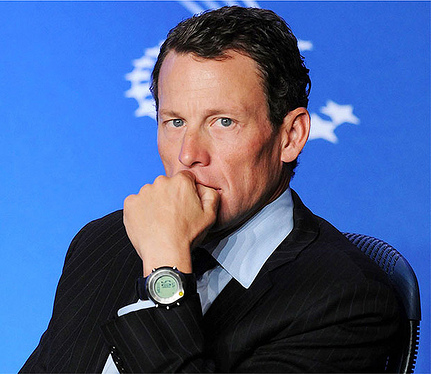By Nick Ubels (The Cascade) – Email
Print Edition: January 30, 2013
Squeaky-clean, all-American cyclist Lance Armstrong’s fall from grace has been public, messy and just a little bit tragic. Don’t get me wrong; I don’t want to excuse his cheating, but I think the public’s sense of betrayal and disappointment has fuelled a severe overreaction. It’s not like Armstrong did much to ward off the pitchforks, continuing his dishonesty in the face of increasingly substantial allegations. After months of denial, his ultimate admission of using performance-enhancing drugs to achieve his greatest successes as an athlete was met with outrage from fans, true believers and armchair snipers everywhere. But why was Armstrong considered such a particular hero in the first place?
He beat cancer. That hasn’t changed. The man came back from a disease few survive, inspiring hope in countless of cancer patients the world over.
He used his celebrity and high profile survival story to start LiveStrong, a charitable organization
that supports other cancer survivors. LiveStrong pioneered the use of charity bracelet fundraising, selling over 80 million $1 bands to date. Other charities have used this model to kick start their own campaigns.
Armstrong did the most we can expect from our celebrities: he leveraged his fame and public admiration to make some kind of a difference.
As for the doping, I think it speaks more to the intense pressure we put on our athletes to achieve un-human feats. For Armstrong, the higher his profile, the more attention his charity would receive. And besides, it’s not as though steroids instantly make someone into a world-class athlete. If I were to start injecting, it would give me an advantage if I put in the time and effort, but I seriously doubt I could qualify for a local cycling event, let alone win the Tour de France.
Armstrong’s failures don’t make him a villain. Certainly they knock him off the perch of sainthood we built for him. But did he ever deserve it in the first place?


